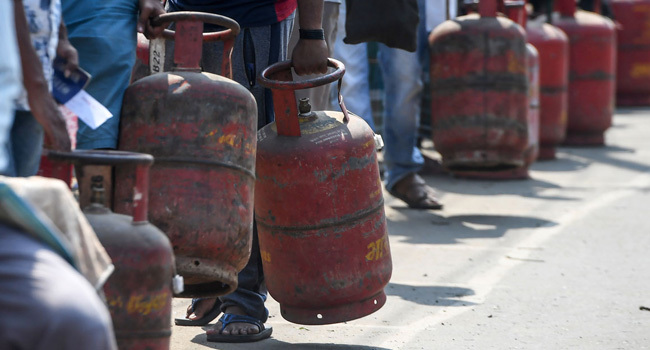The Federal Government has introduced new fiscal incentives to boost foreign investments in Nigeria’s oil and gas sector.
The two incentives were unveiled by the Minister of Finance and Coordinating Minister of the Economy, Wale Edun in a statement on Wednesday.
According to the statement by the Finance Ministry, and signed by the Director of Information and Public Relations, Mohammed Manga said the incentives are aimed at revitalising Nigeria’s oil and gas sector.
It also announced that the importation of key energy products and infrastructure, including diesel, feed gas, Liquefied Petroleum Gas, Compressed Natural Gas, electric vehicles, Liquefied Natural Gas infrastructure, and clean cooking equipment would no longer require value-added tax payment.
Manga said the initiative would position Nigeria’s deep offshore basin as a premier destination for global oil and gas investments, bolster energy security, and accelerate Nigeria’s transition to cleaner energy sources.
This policy directive arrives alongside new divestment plans from ExxonMobil and Seplat, which President Bola Tinubu said would receive ministerial approval in the coming days.
The statement read, “In its avowed determination towards ensuring a boost in the nation’s upstream and downstream sector, the Federal Government has introduced groundbreaking concessions aimed at revitalising the industry.
“This is just as the Minister of Finance and Coordinating Minister of the Economy, Mr Wale Edun, today unveiled two major fiscal incentives aimed at revitalising Nigeria’s oil and gas sector: Value Added Tax Modification Order 2024 and Notice of Tax Incentives for Deep Offshore Oil & Gas Production, in accordance with the Oil & Gas Companies (Tax Incentives, Exemption, Remission, etc.) Order 2024.”
Explaining further, Manga said, “The VAT Modification Order 2024 introduces exemptions on a range of key energy products and infrastructure, including diesel, feed gas, Liquefied Petroleum Gas, Compressed Natural Gas, electric vehicles, Liquefied Natural Gas infrastructure, and clean cooking equipment.
“These measures are designed to lower the cost of living, bolster energy security, and accelerate Nigeria’s transition to cleaner energy sources.”
It explained that the notice of tax incentives for deep offshore oil & gas production provides new tax reliefs for deep offshore projects, stressing that, “This initiative is aimed at positioning Nigeria’s deep offshore basin as a premier destination for global oil and gas investments.”
The ministry said these fiscal incentives reflect the administration’s steadfast commitment to promoting sustainable growth, enhancing energy security, and driving economic prosperity for all Nigerians.
The statement added, “These reforms are part of a broader series of investment-driven policy initiatives championed by President Bola Tinubu, in line with Policy Directives 40-42.
“They reflect the administration’s strong commitment to fostering sustainable growth in the energy sector and enhancing Nigeria’s global competitiveness in oil and gas production.
“With these bold initiatives, Nigeria is firmly on track to reclaim its position as a leader in the global oil and gas market.
“These fiscal incentives demonstrate the administration’s unwavering commitment to fostering sustainable growth, enhancing energy security, and driving economic prosperity for all Nigerians,” the statement concluded.










Got a Questions?
Find us on Socials or Contact us and we’ll get back to you as soon as possible.